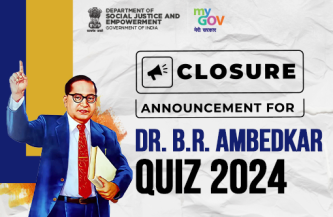Creating Jobs In The New Dawn Of AI

The Indian economy will undergo a seismic shift with the rise of artificial intelligence (AI). It is a powerful technological force which will reshape existing business models and craft new ones. Projections indicate that AI will inject an incredible $967 billion into the Indian economy by 2035.1 As we embark upon this new AI dawn, several novel job roles will emerge in the economy, while also overshadowing many that were previously fundamental.
The World Economic Forum’s ‘Future of Jobs’ report delivers an engaging projection for the global job market, predicting substantial changes in nearly a quarter of existing jobs worldwide. According to the report, about 75% of the companies surveyed, are set to embrace AI, foreseeing a significant reshaping of the job market. Impressively, half of these organizations anticipate that integrating AI will lead to considerable job creation. This trend is further substantiated by a recent survey in India involving over a thousand employers. In this survey, an overwhelming 85% of organizations anticipate that AI will not only create new jobs within the next 1-5 years but also enhance the quality of existing roles.3 Furthermore, 77% of employers are optimistic that AI will improve job security and foster career development. This positive outlook is echoed by the workforce, with many job seekers expecting AI to streamline work efficiency, facilitate skill development, focus on more complex tasks, and emphasize skill-based hiring over experience-centric recruitment.
However, it is critical to acknowledge that the job market is confronted with a significant challenge in its march towards scientific and technological excellence: a pronounced gap between the industry’s evolving demands and the present state of STEM education and skill development. The increase in the number of STEM graduates does not align with their employability, with a notable deficiency in the quality of talent.4 In line with the Prime Minister’s ambitious vision for India to emerge as a developed nation by 2047, a radical overhaul in skill development is imperative. This transformation involves adapting the workforce to align with the global labor market, focusing on skills pertinent to Industry
4.0 And the competencies required for future technological advancements. By the year 2030, India is projected to have a working-age population of 1 billion, accounting for one-fourth of the global increase in workforce over the next decade.5 Harnessing this demographic potential to shape and contribute to the new technological landscape is essential for India to realize its aspirations of development and global prominence.
Indian job market will need a diverse range of specialized talent. This will entail technical pro7iciency in Product Management, Backend and Frontend Development, Full-Stack capabilities, Data Science, AI/ML, Cyber-Security, Software Reliability, and UI/UX Design. Additionally, expertise in cloud service platforms, cloud application development, DevOps and Big Data will increasingly become vital. Moreover, there will be escalating demand for domain-speci7ic skills in emerging areas like Web3, AR/VR, IoT, Climate Tech, Agri-science, and Biosciences.
Addressing the skills gap requires a holistic and multifaceted strategy, much of which is advocated by the National Education Policy (NEP) 2020. Aligning educational programs with current skill demands, including the establishment of ‘Future Schools’ specializing in sunrise sectors like Synthetic Biology, is key to preparing the next generation of tech professionals in India. This should include the implementation of skill and practice-based learning and the establishment of Multidisciplinary Education and Research Universities to achieve international standards in teaching and research. Concurrently, major reforms are needed in industrial training institutes and vocational education, particularly through the widespread adoption of apprenticeship programs. An innovative measure which must be facilitated is the lateral entry of industry and professional experts into AICTE Approved Institutions as Professors or Associates of Practice. Regular updates and revisions of academic curricula are also essential to maintain their relevance and practicality.
In addition to these policy-driven measures, there is also signi7icant potential for entrepreneurship in bridging the skills gap. For instance, Scaler Academy, a skill development 7irm, has successfully launched a comprehensive 9-month coding boot-camp with its structured curriculum covering various essential technological skills. This program has effectively doubled the average remuneration of its participants, underscoring the bene7its of aligning education with industry needs. In a similar vein, Fresh works’ Software Academy has partnered with Pupil7irst, a learning management system, to provide a robust training model for individuals from low-income backgrounds, who lack access to traditional college education. This initiative has been effectively piloted at Sastra University and subsequently extended to 27 government universities in collaboration with the All-India Council for Technical Education, exemplifying a successful industry-academia partnership. The program offers a specialized curriculum in full-stack development, with a focus on Software as a Service (SaaS) products, tailored to empower and elevate the participants’ technological capabilities.
Finally, there is an urgent need to nurture an array of essential professional and life skills beyond technical pro7iciency to build adaptability in the workforce. At the forefront is the sharpening of cognitive prowess, especially in complex problem-solving – which will emerge as the linchpin for career triumph. Next, the dynamically evolving economic paradigm demands an interdisciplinary mindset, where merging analytical depth with creative flair isn’t just advantageous – it’s inescapable to thrive. Finally, as an economy we need to foster a culture steeped in curiosity and creativity. Lifelong learning should become an essential strategy for the workforce to remain a formidable and relevant contender in this new era.
The ascent of AI marks a pivotal transition, heralding a future with limitless possibilities. This shift demands an agile and forward-thinking approach to skill development, as well as a strategic reassessment of our educational and vocational training systems. It is essentially important to proactively equip the workforce with the tools and knowledge needed for success. The Indian workforce should not only be prepared but also primed to thrive in the AI-infused horizon ahead.
Author: The author is G20 Sherpa, India, Mr. Amitabh Kant.





